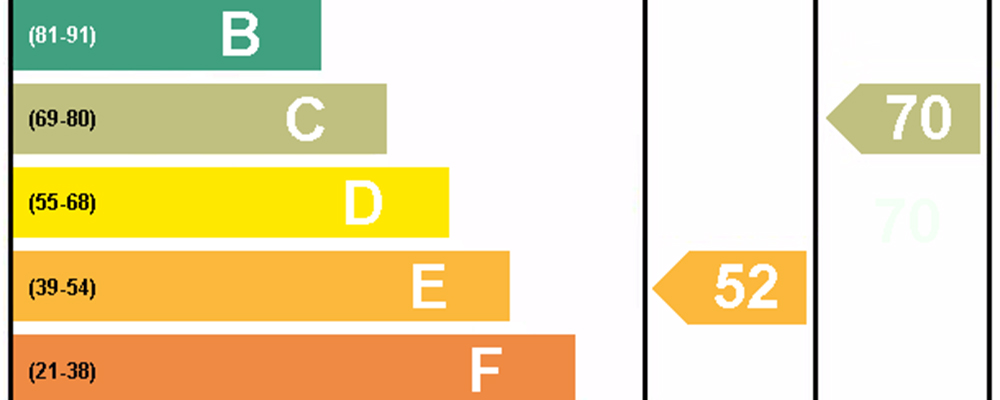
Energy Performance Certificates (‘EPCs’) are certificates which summarise the energy efficiency of buildings. Efficiency is rated from A (being the most efficient) to G (being the least efficient). EPCs are valid for 10 years from the date of issue and are a legal requirement for all property being sold, rented, or built.
There are various exceptions to whether an EPC is required. Some of these are highlighted below:
- The Minimum Energy Efficiency Standards (‘MEES’) govern the EPC guidelines and specify that an EPC is not required for short leases of less than 6 months, long leases of 99 years or more and licences;
- If the building is listed or officially protected;
- If the building is only temporary and is to be used for less than 2 years;
- If the building is to be demolished by a seller or landlord and they have all the relevant consents;
- If the building is due to be sold or rented out with vacant possession;
- If the buyer or tenant has applied for planning permission for the site to be demolished.
The following are examples of exemptions which apply if the property is unable to meet the EPC rating required:
- The payback test: If a landlord can show that the cost of purchasing and installing a recommended improvement(s) does not meet the 7 year payback test. This is where the expected value of savings on energy bills that the measure(s) is expected to achieve over 7 years are less than the cost of repaying it. This exemption lasts 5 years. Once the 5 years expire, the landlord must try again to improve the property’s EPC rating. If this cannot be achieved, a further exemption may be registered.
- All improvements made: If a landlord can show that all relevant energy improvements have been made and the property remains below an EPC rating of E, then the property must be registered on PRS Exemptions Registers. This exemption lasts for 5 years.
- Third party consent refused: Where the landlord is unable to carry out works to improve the energy efficiency of the property because consent of a third party is refused. The property can be let provided the exemption is registered on the PRS Exemptions Register.
- Devaluation: If an energy efficiency improvement would result in the property’s value being reduced by more than 5% of its market value, it is then exempt from meeting the EPC rating required at that time.
Changes in EPC Requirements Coming in From 2023
Since 1st April 2018, the Minimum Energy Efficiency Standards (MEES) has made it a requirement that the EPC rating of a commercial property does not fall below E, where a landlord is granting a new lease.
However, by 1st April 2023 landlords must improve their privately rented commercial properties to have an EPC rating of E or above. This has been extended to include not only new leases or renewals, but also existing leases. Thus, restricting the ability of landlords to let commercial property with ratings of F or G. This is the first phase of the Government’s plan to try and achieve its target EPC rating of B by 2030 for all non-domestic rented property.
Failure to comply with the required EPC ratings may result in commercial landlords facing large fines, which include penalties of 10% – 20% of the rateable value of the property, capped at £150,000.
Changes in EPC Requirements Coming in After 2023
The Energy White Paper highlights that by 2030, it will be unlawful to let commercial property with an EPC rating below B. The Government have set this target in its efforts to tackle climate change and reach net zero emissions by 2050.
This target will be reached by the implementation of stages as detailed below.
- From 1st April 2023, landlords will be required to show that their commercial property has an EPC rating of E or above. This applies to new leases, renewal leases and existing leases.
- From 1st April 2027, commercial landlords must show that their buildings have improved to an EPC rating of C or above.
- From 1st April 2030, all non-domestic rented property must have improved to an EPC rating of B or above, unless a valid exemption applies.
The phases for each target highlight that landlords need to show a valid EPC 2 years in advance of each target date. This is to prove that steps are being taken to improve the energy efficiency of non-domestic rented property, as the target date for each target rating becomes closer.
